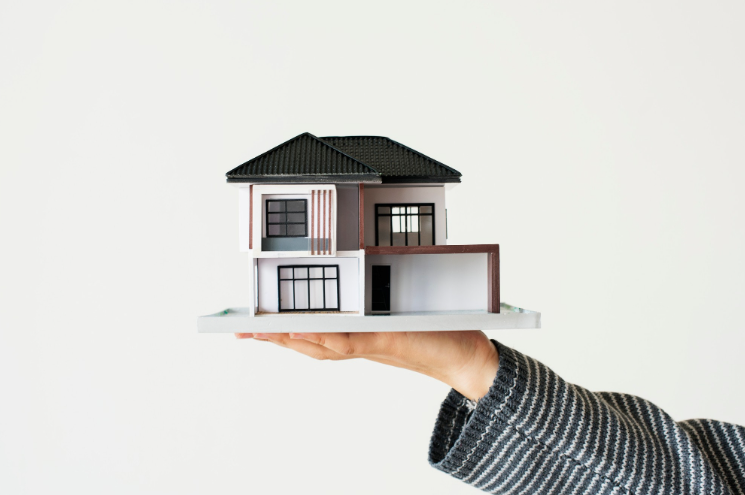With the ever-changing technological climate in the present age, automation of homes commonly referred to as smart homes is gaining traction and influencing the habitus in which we experience our homes. It has not only altered the way live our lives on a daily basis but also the way the real estate business is run. Smart homes across the globe are becoming the new frontier of home security, energy use, and even the real estate market.
Defining Smart Home Technology Smart home technology is the integration of home electronic systems into a single central system through the application of global and centralized control technologies. These devices are intended to interact with one another and are also programmable to be controlled over a smartphone or tablet or through voice commands. Some of the well-known examples of smart home technology include smart thermostats, smart lighting controllers and systems, smart security systems and devices, smart home appliances such as refrigerators, washing machines, dryers, cookers, dishwashers etc., and smart entertainment systems.
Improved security By enhancing the intelligence of homes in the estate, real estate companies shall experience higher security standards. Smart technologies like smart security systems for the home including smart locks, security cameras, and security sensors offer homeowners that extra level of security and convenience. These systems can be controlled and regulated from a distance and the homeowners will be notified via a system in case of any suspicious activities. Furthermore, smart locks can be scheduled to allow temporary access for a friend or a maid without needing an exchange of keys or the implementation of an unknown code that may pose a threat to security.
Improving Energy Efficiency: Another main benefit of smart home technology is energy conservation and management of energy costs. For instance, smart thermostats can detect homeowners’ preferences of when to turn on the heat or air conditioning and automate the process, thus reducing energy consumption and the cost of electricity. In the same manner, facilities that incorporate smart lighting systems will only brighten the lights in areas with people, which will in turn save energy and expenses from being spent on lighting empty rooms.
Price Appreciation Another advantage of smart homes is that houses including these systems are highly appealing to buyers at the moment. Consumers perceive smart homes as convenient and more secure than traditional homes, and buying such homes may even prevent the need to invest in costly alterations, and any property with smart technology is likely to be more valuable than a similar, non-smart property.
Remote Home Management Smart home technology, as discussed here, means that the homeowner can monitor or control certain features of their home while they are at a different location. This feature is particularly useful for individuals who own a first and second home, or for those who live in their homes only during certain periods. By using their smartphones or tablets, homeowners are able to control the climate of their home, switch the lights on or off, and even keep an eye at their home’s security cameras thus they and their families are safe and their homes are energy efficient even if the homeowners are away.
Aging in Place Smart home features are especially beneficial to seniors or disabled persons who can remain in their homes with comfort and for longer durations due to the advanced technologies that allow them to age in place without the need for additional assistance. Technology-enabled devices such as voice-controlled assistants, smart lighting systems, and even smart home appliances help to reduce the burden when it comes to handling daily tasks and chores. Safety features like fall detection systems and emergency alerts are also some of the segments of smart living that ensure that individuals have access to timely assistance as and when they need it.
Integrations and Personalisation Smart home technology another strength is the possibility to connect it with numerous other smart objects and appliances. This integration makes the use of power supply better and more personal in that people can develop their comfortable environment in the home they own. For instance, smart home systems may be controlled in a way that they change lighting patterns, temperature, or entertainment based on time or the people present.
Effect on the real estate agents There are also direct consequences on professionals of real estate The evolution of smart homes has also affected the real estate agents. These new additional aspects to homes make it necessary for realtors and agents to be aware of new smart developments and ready to incorporate them in sales pitches and property exhibitions. Perhaps, real estate specialists may also require modifying their promotional messages related to smart home features: developing web-based tours, using gifs and similar stuff.
Potential Constraints and Factors While smart home technology makes life easier to manage in homes, there are a number of factors or constraints to consider. Some of the key challenges are as follows: privacy and security considerations that could threaten the stability and integrity of these interlinked gadgets and platforms. On the same note, the initial installation cost of the smart home technology is relatively high and there could be some compatibility problems when works of different manufacturers are incorporated.
Future Trends and Development The future of smart home technology is promising, and in every next horizon, there is something new awaiting us. Technological advancements within artificial intelligence (AI), voice recognition technology, and machine learning domain will enable smart homes to become more intelligent, responsive, and adaptive to the occupant. Additionally, the combination of smart homes with other trending technologies, including VR and/or AR, would dramatically change the landscape of how a house is owned or managed.
In conclusion, smart home technology is proving to be revolutionary in the real estate market by increasing the security of homes and saving energy resources, raising the demand for smart homes, and improving the liveliness and flexibility of homes. At some point this is a moving-target as it gets more integrated into the home it will again change how we buy, how we sell and how we even live in our homes. And also real estate brands like Ribhus have started incorporating smart home systems in their properties. There are also various risks within the real estate industry arising from technological advancements where key players have to ensure they capture such change and hence be ahead of their competition.













DoFort
June 15, 2024DoFort CRM software offers an innovative solution for businesses seeking to streamline operations and enhance customer service.